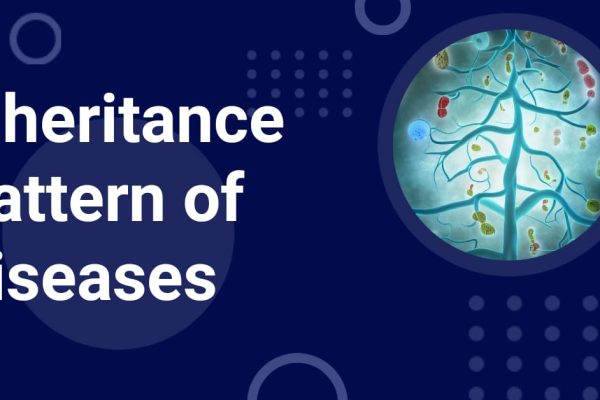Autosomal Dominant Disorders
It is a mode of inheritance that only requires one allele from an autosome chromosome, passed on from either mother or father, for the phenotypical expression of a trait or disorder in progeny.
| System | Disorder |
| Nervous | Huntington disease Neurofibromatosis Myotonic dystrophy Tuberous sclerosis |
| Metabolic | Familial hypercholesterolemia Acute intermittent porphyria |
| Hematopoietic | Hereditary spherocytosis Von Willebrand disease |
| Urinary | Polycystic kidney disease |
| Gastrointestinal | Familial polyposis coli |
| Skeletal | Ehlers-Danlos syndrome (Some variants) Marfan syndrome Osteogenesis imperfecta Achondroplasia |
Autosomal Recessive Disorders
It is a mode of inheritance that requires two homozygous recessive alleles from autosome chromosomes, one from the mother and one from the father, for the phenotypical expression of a trait or disorder in progeny.
| System | Disorder |
| Nervous | Neurogenic muscular atrophies Friedreich ataxia Spinal muscular atrophy |
| Metabolic | Cystic fibrosis Phenylketonuria Galactosemia Homocystinuria Lysosomal storage disorder α1 – Antitrypsin deficiency Wilson disease Hemochromatosis Glycogen storage diseases |
| Hematopoietic | Sickle cell anemia Thalassemias |
| Endocrine | Congenital adrenal hyperplasia |
| Skeletal | Ehlers-Danlos syndrome (Some variants) Alkaptonuria |
X- Linked Dominant Disorders
It is a mode of inheritance that only requires one copy of a mutated allele on the X chromosome, from either the mother or father, for the phenotypical expression of the trait or disorder in progeny.
| Hypophosphatemic rickets |
| Incontinenta pigmenti |
| Alport syndrome |
| Orofacial digital syndrome |
X- Linked Recessive Disorders
It is a mode of inheritance that requires two copies of an allele on the X chromosome, one from the mother and one from the father, for the phenotypical expression of a trait or disorder in progeny.
| System | Disorder |
| Nervous | Fragile X syndrome |
| Metabolic | Diabetes insipidus Lesch-Nyhan syndrome |
| Hematopoietic | Hemophilia A and B Chronic granulomatous disease G6PD deficiency |
| Immune | Agammaglobulinemia Wiskott-Aldrich syndrome |
| Musculoskeletal | Duchene muscular dystrophy Menkes disease Pelizaeus- Merzbacher disease |
Mitochondrial Disorders
It is a mode of inheritance that involves the transmission of mutated alleles in the mitochondrial genome through maternal lineage only.
| Leber’s optic Neuropathy |
| Leigh’s disease |
| MELAS |
| NARP syndrome |
Polygenic inheritance
It is a trait controlled by the interaction of two or more genes at different loci without interaction with the environment
| Type 1 Diabetes |
| Type 2 Diabetes |
| Hypertension |
| Androgenic alopecia |
| Atopic disease |
| Psoriasis |
| Schizophrenia |
| Alzheimer disease |
Multifactorial inheritance disorders (MID)
Disorders that result from a combination of mutations in multiple genes and environmental factors.
| Type 2 Diabetes mellitus |
| Cleft palate |
| Neural tube defects |
| Schizophrenia |
| Coronary artery disease |
Chromosomal Disorders
Trisomy 21 – Down syndrome
Trisomy 22 – Cat eye syndrome (Partial trisomy of chromosome 22)
Extra X chromosome – Klinefelter Syndrome
Monosomy of X chromosome – Turner Syndrome
Nunan syndrome – autosomal dominant disorder (Mutation at Chromosome 12)
LYON’S HYPOTHESIS – Only one of the X chromosome is genetically active.



